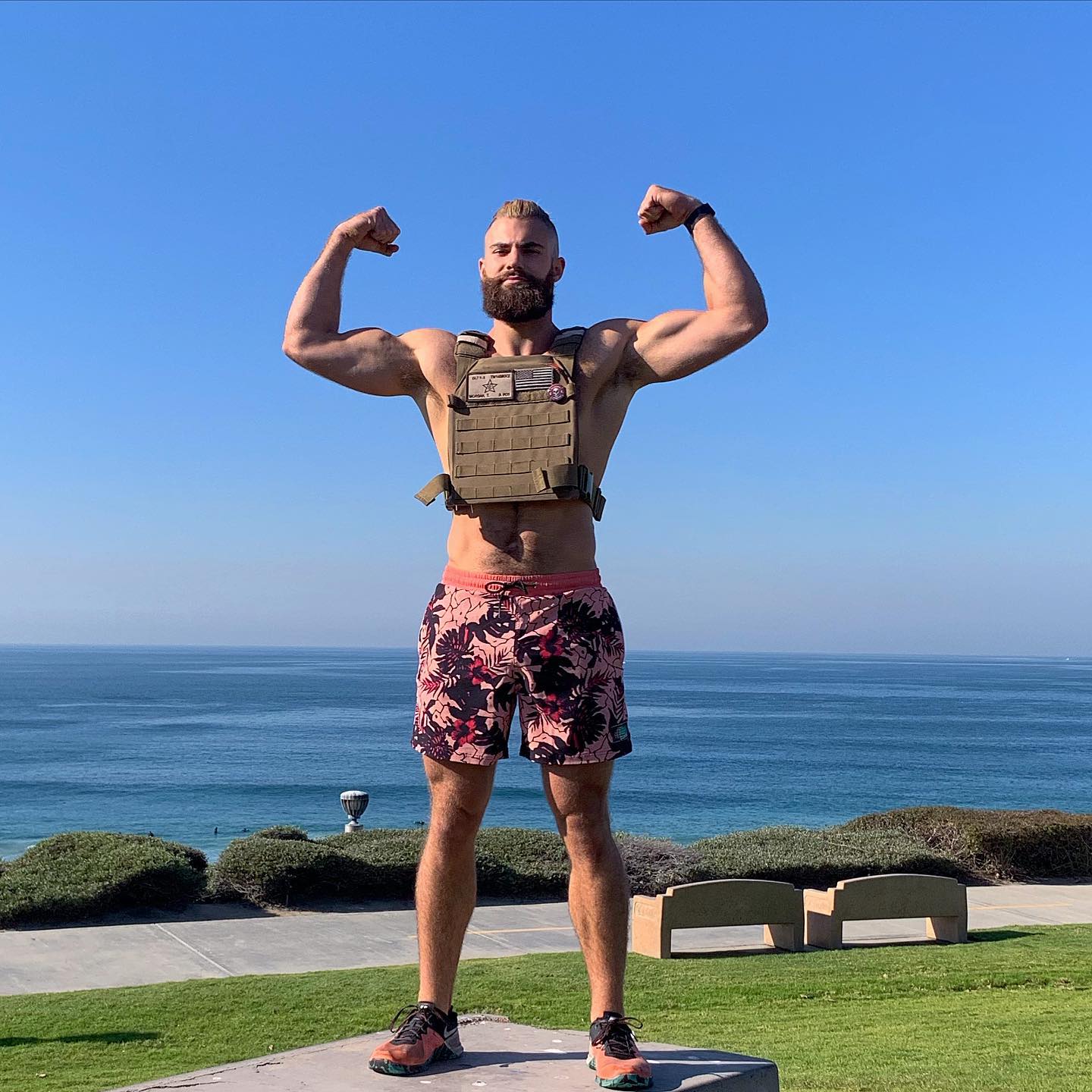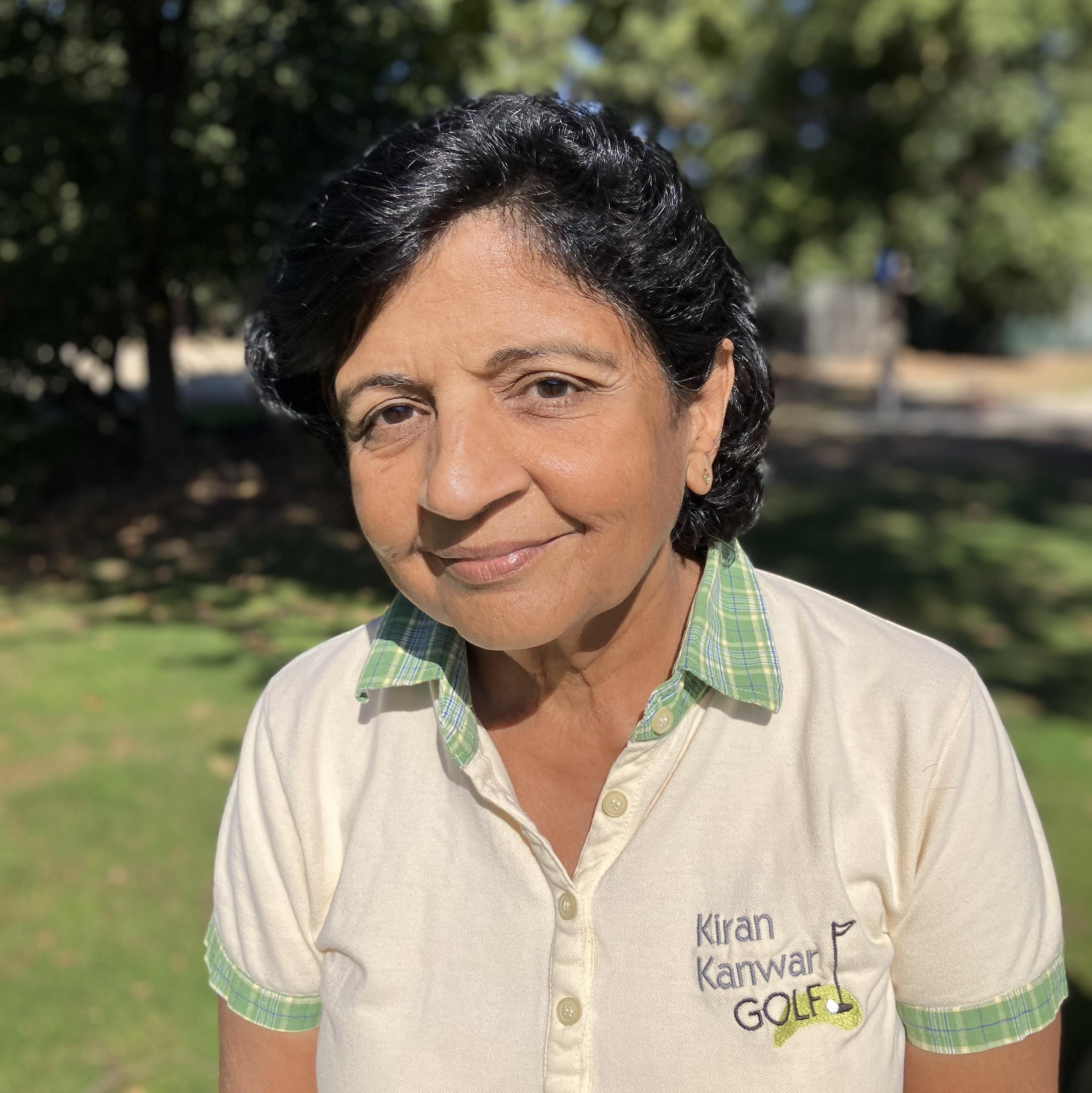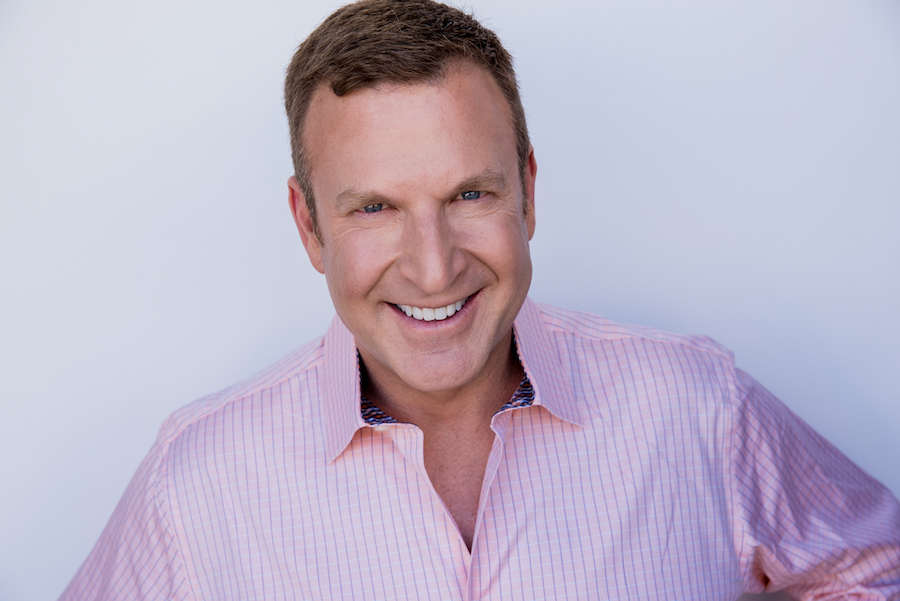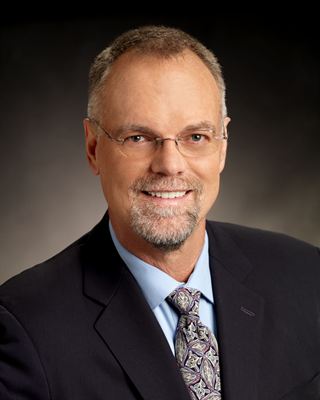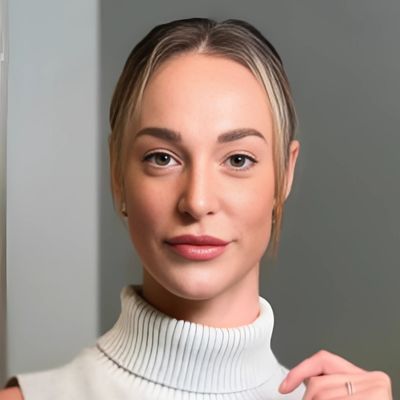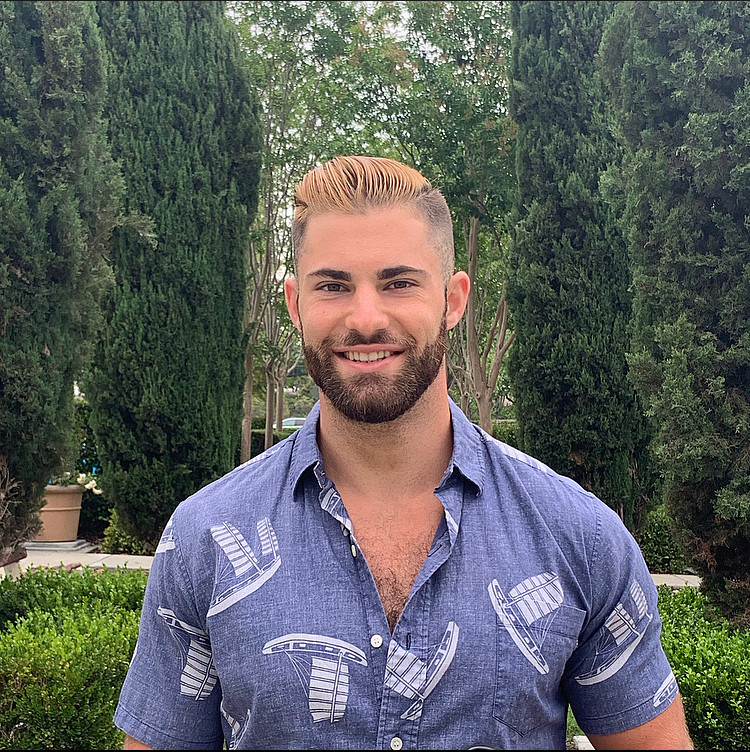
Sleep 101 – Taylor Morgan
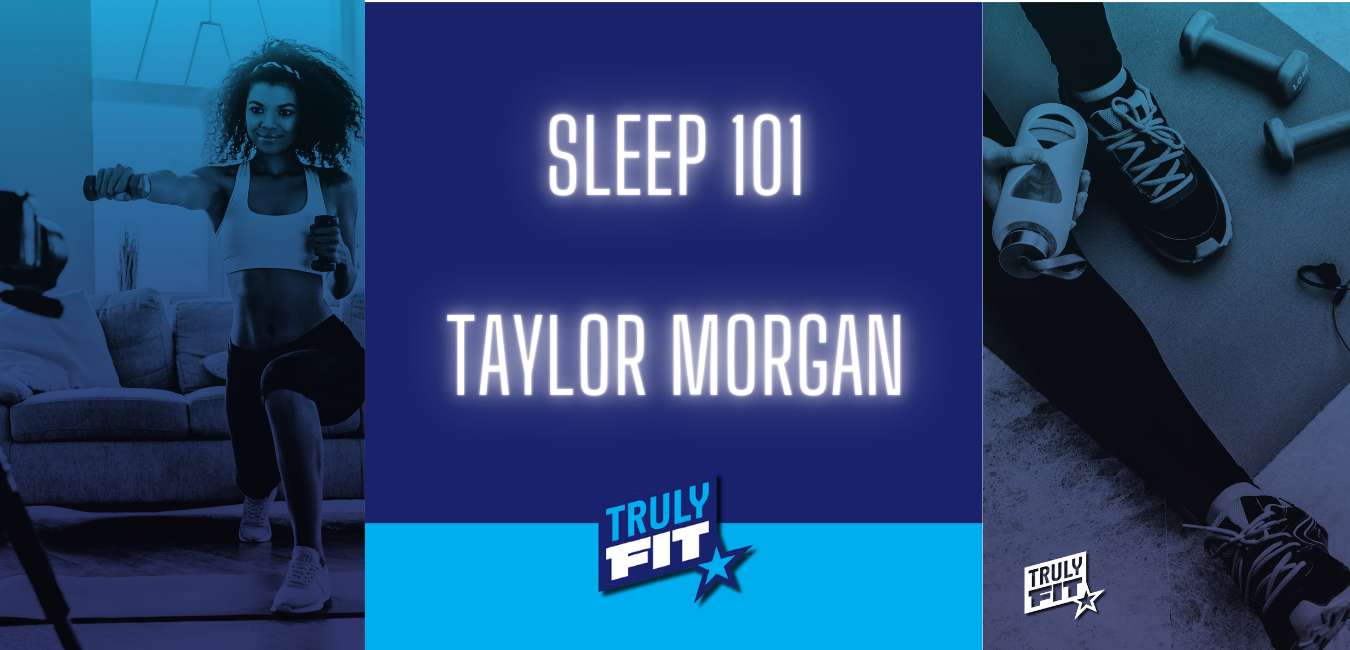
Guest: Taylor Morgan
Podcast Release Date: 9/5/2021
Welcome to Trulyfit the online fitness marketplace connecting pros and clients through unique fitness business software.
Steve Washuta: Welcome to the Trulyfit Podcast. I am your host, Steve Washuta, co-founder of Trulyfit and author of Fitness Business 101. On today’s podcast, I speak with Taylor Morton. Taylor is a former Marine and former CrossFit coach. But today specifically, we’re going to be speaking about sleep. Taylor has dedicated his time, his energy, and his efforts to really studying sleep, and the issues surrounding lack of sleep, along with some remedies and antidotes to help that out.
Taylor and I go over what exactly is sleep deprivation from a clinical definition. We go over his favorite sleep studies, common misconceptions surrounding sleep gadgets you can use to properly record your sleep if you actually need those gadgets, and his 432 130 methods, which I find to be so interesting. It’s a combination of common sense and genius all rolled into one very easy to remember, and great information that you can pass on to your clients through this method. Taylor can be found at the captain lifestyle calm if you want to find out more about Taylor and all that he does. with no further ado, here’s Taylor. Taylor, thanks for joining the Trulyfit podcast. Why don’t you give the listeners a background on you a little bio on what you do professionally? And how it is that you got into it.
Taylor Morgan: All right. Well, thanks for having me, Steve. So yeah, my name is Taylor Morgan. I’m a Marine Corps veteran, holistic lifestyle specialist, and founder of the captain’s lifestyle, I host a podcast. I do one on one coaching with entrepreneurs, specifically impact-driven entrepreneurs on how they can achieve balance in their life, and accelerate their growth and business. We do that by optimizing their health and productivity. So that is what I do now. I’m loving it.
Steve Washuta: Was the course, initially just sleep-related? Or did you kind of work in a bunch of different areas and then kind of narrow down to sleep?
Taylor Morgan: No, so sleep is absolutely a part of it. It’s a very important part of it. But there are six pillars of, you know, to the program. So I started as a CrossFit coach. Once I got out of the Marine Corps, I was a CrossFit coach for like five years ended up being the head coach of the biggest CrossFit gym in Saudi Arabia. And long story short, I wasn’t fulfilled there, I wanted to make a bigger impact. I realized that people, a lot of people think fitness is like, the best thing you can do for your health, which might be true.
But if you’re not sleeping, well, that’s certainly not the case. If you’re working out and you’re sleeping six hours a night, bad quality sleep, you might actually be getting worse and making yourself weaker by working out. Same thing with nutrition and stress levels and you know, mindset and relationships, all those things, living at really all the gyms I coach that people would come up to me and ask coach, why am I not getting better at becoming at the gym for so long now? I’d always ask them, how’s your sleep? How’s your stress? How’s your nutrition? Their answers would always be very similar. They’re not sleeping. Well, if they’re stressed out from work, or relationships, and their diet is pretty good. Anybody who says their diet is pretty good. It’s usually not great.
Steve Washuta: You know, personal trainers deal with this all the time, I’m sure CrossFit coaches alike, is that clients don’t meet their goals. They want to look for something to blame. So sometimes they’ll blame us, they’ll say, you know, what’s going on with our program? You know, we’ve been working together for four weeks, five weeks, I haven’t lost any weight, it’s like, well, it’s not just what you’re doing in the three hours a week you spend with me. It’s what you’re doing on your own time.
It is how you’re sleeping, it’s how you’re eating. It’s like you said your relationship to all things to life, to your job to your significant other to your family, and all those other things. Sometimes it’s taboo. It’s hard to talk about all of those other areas unless you’re really close with your client. But I don’t think sleep is something that’s that big, right? That’s it shouldn’t be we should always ask our clients if they’re sleeping well, but I think the next question to them would be what is sleeping? Well, because the average person at least I, the average personal trainer, I can speak for myself, outside of the one general fact we all know somewhere between seven, eight to nine hours of sleep. We don’t know anything else about sleep. So what is your definition of lack of sleep or sleep deprivation?
Taylor Morgan: Yeah, good question. First off, that’s one of the big problems that I have with personal trainers, just certifications themselves are not fit to be able to actually train people. Because if you talk about nutrition at all, it’s very briefly which obviously nutrition is a huge part of achieving the body you want. The same thing with Sleep, sleep is the baseline. Same thing with stress and everything else. So it’s not that personal trainers are trying to do harm, but they’re not maximizing the potential which is exactly why I transitioned from a CrossFit coach to a holistic lifestyle specialist to incorporate all Of these things. To answer your question about what constitutes sleep deprivation, it’s technically anything less than seven hours of sleep.
They base it strictly on the number of hours. But it’s not just the quality or the quantity of that sleep, it’s even more. So I would say the quality of that sleep if you get eight hours of sleep, but you’re waking up throughout the night, and then you wake up in the morning, still feeling tired and groggy, and you need coffee to wake up, you’re still probably sleep deprived. But if you’re getting good quality sleep, and you’re still getting less than seven hours, then that could still be sleep deprived.
Steve Washuta: Do you and the establishment both have the same definition, meaning like the clinical definition or like the leading consensus is seven hours or less is sleep deprivation? Do you also believe that or do you think that maybe you need even more than that, and they’re just underestimating it?
Taylor Morgan: Yeah, well, the typical definition is, you know, anything less than seven hours. But again, like I said, with the quality of that, I believe that everybody needs a minimum of seven hours. This is talking primarily to adults, teenagers and kids need significantly more than a minimum of seven hours because they’re still developing.
But seven hours is the minimum, meaning if you’re not physically active if you’re not having a mentally demanding day, seven is the minimum that there’s a very small percentage of the population, I think it’s only like 3%, that has a mutation in what I believe is the DEC two gene that allows you to get by on six and a quarter hours of sleep. But even then, like, even if you do have that genetic mutation, you’re still going to benefit from more sleep. So yes, the baseline I would say is seven hours, the minimum.
Steve Washuta: What are some of the other misconceptions surrounding sleep? If you’re riding on a subway and you hear people overhear people talking about sleep, what are the things that people are talking about that you sort of roll your eyes and shake your head?
Taylor Morgan: Oh, yeah, good question. Um, I, I think one that I kind of already mentioned that people think that they can, quote, unquote, get by on less sleep. It depends on I guess, o what your version of getting it is. The clients that I coach, and myself, personally, we’re not looking to get by, like, we’re looking to thrive and achieve our maximum potential. You cannot do that on anything less than a minimum of seven hours of sleep. So if you think that you’re performing at your peak capacity, at anything less, you’re wrong, even like super high achievers, like crazy entrepreneurs who brag about how little they sleep, they’re sacrificing potential somewhere in their life.
Research says this, it’s very clear that your brain can not function at its peak capacity. The same thing with your body, like your physical state, which cannot be at its peak at less than seven hours of sleep. When I say that, I’m talking consistently, like, of course, if you have one night of bad sleep, like that’s not going to ruin your whole life. But if you’re chronically sleep deprived, like, you know, the entrepreneur to brag about only sleeping five, six hours a night like they’re bragging about, basically reducing their cognitive capacity. Like that’s nothing to brag about. So even if you think you’re doing well, you can always do better.
With more sleep, people think that they can be more productive by cutting into their sleeping time, because they think, Oh, well, I’m getting more done because I’m staying up later. That’s actually the opposite. You get more done through what you do during the day, not by sacrificing your sleep. In order to be productive during the day, you have to have that good quality sleep, understand how to manage your time effectively. Your decision-making capacity is significantly reduced when you’re sleep-deprived. So this goes into like diet choices, people who are struggling to lose weight, it’s not just about calories in calories out. If you’re sleep-deprived, and you’re overweight, you’re much more likely to go grab the cookie or whatever it is that you’re trying to stay away from. Just because everything’s messed up in the head.
Steve Washuta: Yeah. You know, calories are considered energy. They’re synonyms in the nutrition world. If you have lack calories, you have a lack of energy. If you’re sleep-deprived, and your body thinks Okay, well I don’t have energy from sleep, so I need to get energy from somewhere else.
You want these dense, rich bad foods and crave it right? Whether you’re hungover and you have really bad sleep because maybe you were drinking right? That’s how I feel like people will say oh, I slept for 10 hours. I don’t know why I want this food. It’s like, well, like you talked about was it was a quality of sleep and I want to lead into that next is there a gadget that you use specifically or that you would recommend using to gauge someone’s quality of sleep?
Taylor Morgan: Yeah, I don’t use anything anymore. Used whoop in the past, which is a wearable that you wear on your wrist that tracks your sleep and your activity levels, which is why I liked it as a CrossFit coach because you could basically check everything. Stopped using that just because I had worn it for, I don’t know, like two or three years. I know that I understand everything that affects my sleep, and I’ve gotten to see over that period of time, okay, when I drink alcohol, even if it’s just one glass of wine, my deep sleep is going to be significantly reduced. Like that’s, that’s just what happens.
So I kind of understand what affects my sleep now. So currently, I don’t use any sleep tracker, I base it on a feel. But I would recommend the whoop, I would recommend the aura ring, there’s another one called the bio strap. So there’s plenty of sleep trackers out there. I wouldn’t recommend the Apple Watch or like the Fitbit, or the common ones. Just because they’re not as accurate as things like whooper, the aura ring. So I would say the best of the best would probably be the aura ring. But the whoop, what I like about that is that it also tracks your activity levels. So especially in the fitness space, you can, you know, track your activities, you can track your workouts.
Steve Washuta: Yeah, I believe in the whoop, I know the aura does, but the whoop also tracks your HRV your heart rate variability, which is also something else you could kind of pair with your sleep and all the other things to know. Okay, is this going to be a hard training day or not? Right? If my heart rate variability, excuse me, my HRV is off.
I only have six hours of sleep, it’s probably not the day to do your 12-mile run, right? If you’re a long-distance runner, it’s probably the data, maybe just do calisthenics and some sort of stretching. Right? So I think those are also good measures before you go into that. Yyou’ve hit on a few different studies already. You mentioned three or four different ones. Is there a favorite study of yours? Is there a factoid about sleep that most people don’t know that you think is very interesting?
Taylor Morgan: Um, there’s a lot of things about sleep that people don’t know, I actually went out and interviewed people down by the pier in San Clemente where I live. I was shocked at how many people didn’t know what your circadian rhythm was. Your circadian rhythm is basically, it’s everything for your health. It’s your body’s internal clock that tells you when to wake up when it’s time to go to bed. Almost everybody I interviewed, there were maybe two or three people who had heard of it, but they didn’t really know anything about it. Turns out everybody that I interviewed who had never heard of it, their sleep was bad.
I don’t think anybody I interviewed rated their sleep above a six out of 10 which is horrible. It goes to show because I asked them follow-up questions. How do you feel in the morning? They were always groggy. they relied on caffeine throughout the day, they had brain fog, they couldn’t focus. It’s like well, No wonder you’re not taking care of your sleep. You take care of your sleep by understanding and prioritizing the health of your circadian rhythm. And if you want we can get into what that is.
Steve Washuta: Yeah, I want to get into that. I just want to add a quick point here before I forget that your trainers, we ask our clients a lot of times, how are you sleeping? Well, but I don’t think we augment the workouts accordingly to their answers. I think that’s important, right? So when you talk to your clients, and they say, Hey, you know, I was up all night, I have a toddler, I slept for hours. You go Okay, and I understand, well, now you have to, you know, change your workout, you have to restructure because they’re not going to get as much out of it right.
You don’t want to waste the hour they have with you doing what you consider is like a hard leg day, they’re not going to have the energy and the ability to do that. So I think it’s important that not only do we ask the question, but that we restructure the workout around that.
Taylor Morgan: Yeah, and on that point, one, that’s a reason why I think everybody should get a sleep tracker, at least for a period of time. So you understand what things affect your sleep. And this is why I like the whoop because it gives you the recovery score in the morning. So if your HRV is low, if you got a bad night’s sleep, you’re in the red, that they raised it from like red, yellow, green, green is like fully recovered. Yellow was moderately recovered. Red is you should probably take it easy today.
If you’re in the red, and so going into the gym and crushing yourself, like going hard, that’s doing more harm than good, for the most part. So that’s why it’s important to understand that how your body feels. And to your point about the trainer’s asking questions, that’s a good place to start. trainers should always ask their clients questions about everything that’s going on in their life.
But I think a lot of time from at least from my personal experience, and from the interviews that I’ve done, people don’t know what they don’t know. So if they’ve been sleep-deprived for so long, they just think that how they feel right now is normal. Because especially because it’s reiterated by everybody, they weren’t a morning feeling groggy, and you know, have to drag themselves out of bed and drink three cups of coffee throughout the day. So they see that they think, Oh, well, that’s just normal.
That’s just how it is. If you work a nine to five job. And almost everybody, I asked when I say how’s your sleep, they respond with Oh, it’s good. Or it’s pretty good. It’s like, Okay, well, what does that mean? Do you wake up in the middle of the night, do you have trouble falling asleep, do you wake up in the morning feeling refreshed and energized all day? Like, you don’t need to rely on coffee? I usually ask those questions, not just how’s your sleep? Because the Same thing with how’s your diet, everybody’s going to respond with Oh, this is pretty good. So go a little bit deeper with those questions to really find out how their sleep is. And to tailor those workouts from there.
Steve Washuta: Yeah, that makes perfect sense. They have a baseline, they believe their baseline is good. But their baseline might be shit, right? They need a reset, they need a resetting almost right another baseline to know what actually is good. And that’s a great point. That’s something that person should certainly study so that they can work on that with their clients and take those next steps.
Because ultimately, like you said, if the goal is to get your clients to their goals, get them in their best shape, get them to run that marathon, or get them to win that CrossFit competition, we have to make sure that we’re working on all lands, right on sleep on nutrition on the actual training, and they’re all sort of interconnected, like a belt loop. Iif one of them’s off, it’s just, it’s not going to be it’s not going to work. So you mentioned some of the gadgets that you use. Is there a telltale sign outside of the gadgets? I know that you have a feel for it, but somebody who is uh, is new to trying to discover if their body is well-rested or not, is other telltale signs that we should know?
Taylor Morgan: Yeah, well, those three questions that I mentioned, do you struggle in the fall asleep? Do you wake up multiple times in the middle of the night? And do you wake up in the morning feeling refreshed and excited, like ready to get out of bed without caffeine? Like, if you answer those three questions negatively like if you do struggle to fall asleep if you do wake up two to three times in the middle of the night if you don’t want to get up out of bed in the morning, those are pretty telltale signs.
Other than that, you know, throughout the day, is if you experience brain fog, sleep is one of the best ways to alleviate brain fog along with dietary strategies. The mid-afternoon wall, a lot of people experience at like two to 3pm, where they go grab another cup of coffee, that can be due to poor sleep as well. Or it could be due to what they eat for lunch, as I’m sure you’re aware of, you know, what you eat directly fuels you. So if you eat garbage, you’re gonna feel like garbage.
Usually, it’s both because once people start to take a deep dive into sleep and understand how important that is, then their health-conscious and they start to look at diet or vice versa. So I find that most people who struggle with sleep also struggle with their eating habits. And not necessarily any fault to that, in the mainstream media, a lot of stuff is you know, you have to go to like an alternative health practitioner to tell you this stuff.
Steve Washuta: So I’ll give you a scenario here. Then you can respond as if your client and you’re giving me the next step here the next direction. So we’re talking we meet, I say, you know, my workouts are okay, I think I sleep okay, and I’ll just say seven and a half hours a night. But when I wake up in the morning, I need five cups of coffee. I’m having 350 milligrams of caffeine between the hours of eight and 930. This isn’t me, I’m being a fake client here. How do you deal with those clients? Is that okay? What’s your process in dealing with that?
Taylor Morgan: Well, my program is, is structured the way it is for a reason like sleep is one of the first things that we talk about. So there’s like a hierarchy. There’s like a pyramid of like most important tip size, like five out of six, you know, being least important. So what I would recommend in that case is they’re probably not watching the sunrise.
But most people aren’t. Watching the sunrise is probably the most beneficial thing you can do for your health, happiness, and productivity. Not just the sunrise just getting outside in the sun during the day watching the sunset. It’s so powerful. for health, happiness, productivity, specifically, why it would be good for somebody who relies on multiple cups of coffee in the morning is because the sunlight, specifically the blue light from the sun, shuts off your body’s melatonin production in the morning. So that naturally wakes you up, it raises your cortisol, your cortisol should be naturally high in the morning.
That’s a whole nother topic we’d get into. In addition to shutting off the morning, melatonin production, it also resets it for that night. So it wakes you up in the morning, and sets you up for better sleep that evening, just by watching the sunrise. Two minutes is the minimum. But I always recommend a minimum of 10. Because if you don’t have 10 minutes in the morning, to go on a walk and get some sunshine, then you don’t really have a life.
Steve Washuta: Yeah, anecdotally, obviously, with no science behind it, I always feel better when I accidentally wake up. As the sun is coming up, I have a sort of a burst a surge of energy. I notice when I wake up as the sun is coming up, so do I. You know? I’m sure there’s something to that.
I always, I always felt that it was felt that there was some sort of connection with not, not oversleeping waking up when the sun comes up, I’m sure obviously in connection with all those other things that you named, and you had mentioned, the method that you use, or your program that you use, and feel free to talk a little bit more about that and or not talk about it if it’s only provided in your course. But it is called the 432 130 method? And if you want to elaborate on it, go for it.
Taylor Morgan: Yeah, we can do that, for sure. But first, I want to touch on something that you said about waking up before the sun. A simple, quick test that everybody can do is from a sleep doctor, Dr. Michael Bruce is the author of why we sleep, you can go take this quiz, it’s free at the power of win quiz.com. And what this will tell you is your specific chronotype.
There are four different Crono types. So if you’ve heard the terms like early bird or night owl, those are actually based in, in, in truth. So your body has a specific chronotype it’s in your genes, you can’t change it, it changes, you know when you’re a kid, but it stays the same when you’re adult up until you know, like age 65 or something then it might change again. But for everybody listening, you probably have one chronotype you can’t change. So it’s best to follow a structured day that best aligns with that chronotype. So about 50% of the population is the bear chronotype, which is basically the rise and fall of the Sun wake up when the sun rises to go to bed when the sunsets.
This is what the nine to five, work was modeled after. This is what the school system systems were modeled after is the rise and fall of the sun. If you get like the dolphin, for example, those are the typical insomniacs that stay up a little bit later, they might have more trouble sleeping. There’s the lion, which likes to wake up really early in the morning goes to bed early. Then there’s the wolf. So based on your chronotype you should structure your day as best you can to tailor that if you get the dolphin chronotype and you’re an insomniac, you like staying up till you know one 2am in the morning waking up at 10pm. I wouldn’t recommend that to anybody. But if like shift works is another thing. That’s a whole nother topic.
There are ways to make the best of it. shift work is like the worst thing you could possibly do for your health. Just because sleep is the best thing you can do for your health and shiftwork messes up your sleep. So that’s like a whole nother tangent we could go on but to get to the 432 130 method. It’s four hours before bed. Make sure you finish up all intense exercises. So this is for two reasons. One, exercise raises cortisol, and also your body temperature.
The two things that you want to be the bare minimum when you’re trying to go to sleep. If you’ve ever tried to go to sleep hot or stressed, you know that it’s almost impossible. So cutting that workout four hours, three hours, minimum before bed will do wonders. So the people who go to the gym like the 24 Hour Fitness at like midnight and they wonder why they can’t sleep. Probably the reason why also the fluorescent lights at the render and if they take pre-workout is so that three hours before bed is finished up your last meal. Because just like working out a large meal also raises your core body temperature and your body doesn’t want to be digesting food when you’re trying to go to sleep.
To his limit, all forms of stimulation, primarily light so the blue light But you want to avoid that at all costs in the evening. So this comes from things like your devices, your laptop, your computer, overhead fluorescent lights, you want to avoid that by either turning them off or shutting them down, just get off the technology, turn off the lights. Or you can hack it with things like blue light blocking glasses, there’s computer software that you can install that blocks the blue light. Also, stimulation like loud music is also like horror movies or violent video games, because that all raises your cortisol as well. Also, it requires more inhibitory neurotransmitters, like GABA, and serotonin to calm you down before bed.
The one hour before bed limits is amazing. If you have to wake up to pee in the middle of the night, that can be a very simple hack to get more quality of sleep. Because if you wake up, that obviously interrupts your sleep, that reduces the quality. So by cutting out the liquids, a minimum of an hour, if that doesn’t work, push it back to 90 minutes, that doesn’t work, push it back to two hours, if you stopped drinking two hours before bed, and you still have to wake up to pee in guys, that that might be a sign of a prostate issue.
So maybe check that out. If you’re older, than like 55 or so, then you’re probably just gonna have to wake up to pee in the middle of the night anyway, so there might not be much you could do about that. Also, at the one-hour mark is when you begin your nightly ritual.
This means no work. Ideally, no technology, and introduce things like stretching or foam rolling, or meditation, journaling, reading anything that’s going to help wind you down and relieve your stress. Alright, and then the 30 in the 432 130 is take your supplements. This is going to vary per person. But something I recommend everybody take is magnesium, just because up to 80% of the population is deficient in magnesium. It plays such a crucial role. Over 300 different really improves the quality of your deep sleep, which is the restorative stage of sleep when your brain consolidates memories. Your body releases HGH and testosterone which is good for building muscle. And it also magnesium relieves stress. So it lowers cortisol as well. There are other supplements out there. But again, that’s going to vary on a per-person basis. So that is the 432 130 method.
Steve Washuta: Fantastic information. It all makes perfect sense in some respects. It is common sense. But in other respects, it needs to be you need to beat people over the head with that stuff to really have them do it. I want to comment on a few points. Work backward here, the magnesium, I’m actually having a magnesium expert on the podcast early next month. She goes over all the different types of magnesium, how they work in your body, and even like transdermal magnesium, which you sent me, which I haven’t tried yet, but I’m intrigued about that.
I take DMA which I’ve taken for years, I take it on and off, meaning I don’t take it every single day, but I’ll take it for two weeks, and then two weeks on two weeks off kind of deal. I always feel better. My sleep is always better. Sometimes I have funky dreams, but I kind of like it. So it doesn’t bother me.
But you know, as far as the other things that you lead to, it’s just all a healthier lifestyle. It’s a course it’s going to be healthier for us to be reading or foam rolling or stretching 30 minutes before bed, you know, and it’s something that we don’t do. But it’s it makes a difference in sleep right? We have to understand that in as far as the eating three hours before bed. Obviously, that’s going to make a big difference.
We know that already in all the studies. Then the working out, I have to piggyback off what you said, everybody uses these supplements that are so highly caffeinated, right? You have these B vitamins through the roof. And then I have clients complaining to me that they have panic attacks and they can’t get sleep. I’m like when you workout at seven o’clock at night and you took three scoops of preworkout. You’re like that’s not good, right? So I know these things sound obvious, but when you’re sitting down with your clients, you know as a personal trainer, and you’re looking through their wholesale approach from start to finish, right? How they sleep, how they wake up what they’re eating, what supplements they’re taking.
Make sure that you’re looking at these things right are are you working out too late? Are you getting to bed in time? Are you taking supplements that you shouldn’t be prior to your workout because it’s too close to bed involve all of these things when you sit down with your client because they’re going to get to their goals faster? If you’re looking out from their wholesale holistic approach and not just the one hour you’re working with them for that debt 100% we went over the 4321 method and before you have I’ve touched on age a little bit. Is there anything else that’s like age-dependent as far as like the differences between again, you said, like seniors and people who are in that vast majority of the middle group, and teenagers that that is like a fun fact that people don’t know?
Taylor Morgan: Yeah, I’ll touch on melatonin. Because that’s, the most popular sleep supplement that everybody probably thinks of. Unfortunately, it’s recommended to a lot of kids from their pediatricians, when parents come to them that they can’t sleep. I don’t recommend that at all. Melatonin is a hormone, it’s not just a supplement. It’s actually a hormone in your body that, you know, can do damage. If you don’t use it properly. So for kids, I recommend, you know, getting out in the sunlight. Like obviously, if they’re a newborn baby. Don’t just you know, leave them out in the sun, and beg for every thing to be good.
I think part of the problem is a lot of parents don’t take their kids outside. They’re afraid of the sun. They rub them up with sunscreen, they cover them in the thing. And they also shove the iPad or the phone. When it’s nighttime, when the parents just want to relax. They give the kids the iPad, they’re getting all that blue light. So no wonder why they can’t sleep.
Now take all this with a grain of salt, because I’m not a parent. So I have not experienced that yet. So I don’t know what it’s like. Going back to melatonin. I don’t recommend people supplementing with melatonin consistently, especially at high doses. So with melatonin, and I’m talking now I’m talking to you know, the adult range of people. With melatonin, you want as low a dose as possible. So anywhere from point one to point three milligrams will work. What you see in the store, the lowest you’ll probably be able to find is point one. But most of them, I’m sorry, it is we are five milligrams. And you definitely do not need that much.
The only time I recommend higher dose Melatonin is if you’re traveling, it can work wonders by reducing jetlag. But for daily supplementation, don’t take that much. Because if you take that consistently, it can mess up your pineal glands’ natural production. So for if you do need that, to get back to your circadian rhythm, then only point one 2.3. If you’re a senior that changes a little bit. Because naturally, your pineal gland starts to stop producing as much naturally. So then it is okay to take a daily supplementation of that point one 2.3 milligrams.
Steve Washuta: Yeah. I say this a lot in this podcast, there are no solutions, there’s only trade-offs. So if you’re going to be taking this medication or any other medications. Whether it’s over the counter or not. There are always effects on the body, right. Especially if you’re taking too much of it, right. There’s difference between medication and poison, it’s just in the dosage.
So I think it’s important that you know, people are using melatonin when needed. But there are so many people who are using it every night. They’re relying upon it because they’re not taking instructions like you just gave in the 432 130 method. Just another point on the kid’s thing, I do you know, I have a five-week old. And you don’t sleep with a five-week old, there’s not much you can do you sleep. Unfortunately, in bunches, and I don’t feel great. But there’s nothing you can do until they’re sleeping through the night. You have to wake up with a child because the mother has to feed the child.
But as far as the kids are concerned. They don’t have a choice until a certain age on what their surrounding environment is. So if your kids not sleeping well, it might be because of what you’re presenting to them, right? You’re on your laptop, they’re sitting on your lap. You’re watching Netflix, at 8:30pm, five minutes before he’s going to go to bed or she. And there, they also have to be, you know, sort of inundated with that blue light. So it is important as a parent to understand that whatever you’re doing. And your lifestyle when your child is young, your child is being sorted of brought into that lifestyle. That may be why he or she’s not sleeping.
Taylor Morgan: Absolutely, yeah, set the example.
Steve Washuta: So if people want to find out more about your program. Or if these are personal trainers who just want to ask you a question. Follow you and get some tips, how do people find you?
Taylor Morgan: Info.thecaptain’slifestyle.com. That has a link to the 432 130 method. A free download of the PDF version that goes into more detail than I did on the show. It’s all in writing so you can refer back to it. There are links in there to specific things that I recommend, like the magnesium that I use. If you scroll down, there are links to my social media. So feel free to reach out to me on Instagram there. So just info.thecaptainslifestyle.com is where you can find more about the program if you are an entrepreneur. That’s where everything is.
Steve Washuta: I’ll link all your stuff in the description. I will be tagging Taylor and all the big stuff. So look out for it. Taylor. Thanks again for joining the Trulyfit podcast.
Taylor Morgan: Steve, thank you for having me.
Steve Washuta: Thanks for joining us on the Trulyfit podcast. Please subscribe, rate, and review on your listening platform. Feel free to email us as we’d love to hear from you.
Thanks again!
